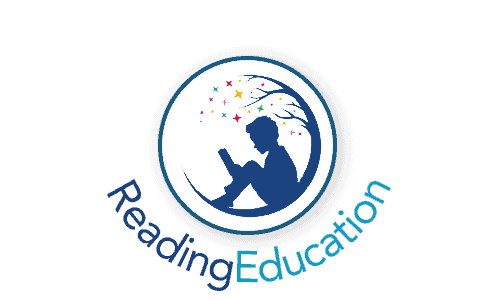Learning to read is one of the most – if not the most – important skill a child can learn; therefore, it’s no surprise that parents explore and research ways that can help their child to learn this crucial skill. Studies have shown that the extent of a seven-year old’s reading skills may predict their income 30 years later1, so helping your children’s to improve their reading ability from an early age might lead to a brighter and more prosperous future.
If you’re a parent and are looking for some advice where reading is concerned, you’ve come to the right place. In today’s piece, we’re going to delve into ten essential tips that can aid your children in learning to read both more quickly and to a higher standard.
Improving Your Child’s Reading Ability: 10 Pieces of Expert Advice

#1: Start Early
Contrary to some (mis)information out there, early teaching isn’t detrimental to a child’s learning. In fact, the opposite is true; there’s no such thing as ‘too early’ – I started reading to my son and daughter a few days after they were born! Although the “pitfalls of teaching early” is something that has been studied extensively for over a century, no convincing evidence for this theory exists; therefore, it is best to pay no heed to it. Instead, revel in the fact that there are a wide array of studies that exemplify the tangible benefits of reading to your offspring when they are in their infancy. In short, embrace early teaching!
#2: Teaching Literacy Isn’t Difficult or Different
One stumbling block that may halt some parents in their tracks is the notion that teaching literacy to their children requires special skills or qualifications. This, of course, couldn’t be further from the truth. You don’t need a college degree or PhD from Harvard to raise a healthy and intelligent child. Parents have been raising happy and smart children for thousands of years, teaching their children to eat with cutlery, how to use a potty, say ‘please’ and ‘thank you’, and stay away from dangerous things. All of these vital aspects of life can be taught with relative ease when done in a pleasant fashion (shouting and getting angry never gets anyone anywhere!) – and this applies to teaching literacy and reading too. If you show a book to your 18-month old and they exhibit no interest in it, simply put it away and try again another day. If, when your child(ren) starts to write, they make mistakes, it’s not an issue. Patience and love are the key to early teaching; no pressure or expectations – just an enjoyable journey that you do together.
#3: Talk To Your Children
Talk to your children a lot, no matter how young they are. When my first granddaughter was born, I spent (and still spend) a significant amount of time with her. Whenever I was with her, I’d talk to her, sing to her, and told her about everything that was going on around her and, most of the time, what was going on inside my head! While she was ‘just a baby’, I made a conscious effort to speak to her as much as I could. Whatever I did, I talked to her about it; whatever she did, I spoke to her about it – even the seemingly most insignificant of things such as yawning or burping. In fact, I talked to her so much that her Mom and Dad thought I was a little bit crazy! However, there is method behind this (what looks like) madness. Reading is a language-based activity; therefore, if you want to learn a specific language, you need to hear it, and ultimately, speak it. I know many parents feel a bit silly, continually talking to babies and young children. Still, studies have found that exposing children to a wide range of words can aid the development of their literacy skills2.
#4: Read To Them
This may seem like an obvious thing to say, but it is one of the best things you can do – particularly where pre-school children are concerned. A colleague of mine refers to this tidbit of advice as the “chicken broth” of reading and literacy education – we prescribe it for absolutely everything! If a parent or carer is unable to read English, there are viable alternative options, such as audiobooks; however, for those that can, reading a story or any form of book to their child is a simple and straightforward way to further literacy skills. Research has indicated that reading to children as young as 9-months old can have profound effects, and might be effective on children even younger than that3. Reading to children exposes them to far more extensive vocabulary than they typically would hear from adults engaging in normal, everyday conversation, which may, in turn, have a positive effect on their intelligence, language, and literacy, as they get older. The question most parents ask, however, is what type of book they should read to their children. With such an array of children’s books available, it can often be a daunting task trying to decipher which to choose. Still, in reality, the vast majority of books are suitable and will help to advance your children’s literacy and understanding of the English language.

#5: Encourage Them To Tell You Stories
One of the best ways to introduce children to literacy is to have them tell you a story. Of course, this doesn’t have to a complex story (don’t expect them to create a fantasy world akin to Narnia!); it can be something as simple as reciting something they did earlier that day or talk about things they like. When they tell you their story, write it down. Then, when they’ve finished, read it back to them (slowly) pointing to the words as you read them. Over time, your child will likely begin to recognise simple words. As they learn specific words, you can write these down in a “word vault”, which can be used to review words later.
#6: Phonemic Awareness is Important
When learning to read and speak, young children don’t hear the specific sounds within a word. For example, they hear “hog”, but not the “hoh”-“aw”-“guh”. To learn how to read correctly, they must learn to ‘hear’ these sounds (the technical words for these sounds is ‘phonemes’). To help them learn this, play language games with them. Say a word, then break it apart for them and get them to repeat the full word and the broken down word – for example, chair and ch-air.
#7: Listen To Your Children Read
When a child starts to read, their teacher will start sending them home with books to practise their reading as part of homework. Although some children may be shy or feel uncomfortable reading in front of you, it is a crucial part of the process of learning to read – not to mention instilling confidence; therefore, encourage your children to read in front of you. Research has shown that related oral reading practice makes students more accomplished readers, even when performed at home.
#8: Encourage Writing
Literacy encompasses both reading and writing. To promote overall literacy, it is important to have not only books, magazines and the like available to them, but also pens, pencils, crayons, and paper too. Encourage your children to write and draw. I find the best way to get them to start writing more is to write them little notes to which they have to respond with a hand-written note of their own. Although this may be difficult or beyond their capabilities, to begin with, it won’t be long before they’re writing notes and letters back!
#9: Ask Your Children Questions
After your child has read to you, ask them questions about the story or information they have recited. If they’ve read a story, ask them about the names of the characters and what happened. If it was information-based text, ask your child to explain what the information was about. Remember, reading doesn’t just involve reading the words and understanding their sounds, but also remembering and thinking about what the text of a book has said. Improving reading and writing comprehension skills in a child’s early years will help them to prepare for more challenging texts and promote greater success when tackling these.
#10: Regular Reading is a Must
Although we’d never suggest making reading a strict and regimented part of daily life, we do positively encourage reading numerous times per week. Making it fun, enjoyable and hassle-free is the best way to do it as it will make your children actively want to read and partake in reading-based activities! When I ten years old, my Mom always took me to the library to find books that interested me and then set aside half and you after dinner each night to read them. Try to set aside around half an hour each day (or several times per week) for dedicated reading time. Remember to make it as fun as possible!
Thank you for taking the time to read our blog; we really appreciate your time and hope you found this article informative and helpful. If you have any comments, questions, or suggestions, please don’t hesitate to get in touch!
References:
1. Stuart J. Ritchie, T.C.B., Enduring Links From Childhood Mathematics and Reading Achievement to Adult Socioeconomic Status – Stuart J. Ritchie, Timothy C. Bates, 2013. SAGE Journals. Available at: https://journals.sagepub.com/doi/abs/10.1177/0956797612466268.
2. Anon, NAEYC. Available at: https://www.naeyc.org/resources/pubs/tyc/feb2014/the-word-gap
3. Karrass, J. & Braungart-Rieker, J.M., 2004. Effects of shared parent–infant book reading on early language acquisition. Journal of Applied Developmental Psychology. Available at: https://www.sciencedirect.com/science/article/pii/S0193397304001418.

